Recently we were at dacha, Olga’s grandparents’ house in a small village named Dolgovka. The house is well over 200 years old. It was clearly built by a wealthier family; the house is one of the largest and was built with high-quality materials and workmanship. Now, it’s run-down and needs a lot of TLC.
One interesting part of the history of the house is how it weathered WWII. In October 1941, the German army moved through the village. In early 1944, the German army retreated along the same route. The Germans used the house as a headquarters. It’s interesting to think of German soldiers sitting in the chairs we still use.
There were battles in the village, and the house still has shrapnel damage from bombs and shells that fell nearby. One lady who was living in the house at the time died from shrapnel wounds. I took some pictures of the damage that remains:
This is an upstairs bedroom door. You can see two places where shrapnel pierced through.
Here are two scars in the eaves of the house:
This is a hole in an interior wall. A few years ago I dug this piece of shrapnel out of the log wall opposite.
This scar is on the door of a wardrobe.
And this is the upstairs gable. The elongated holes are gaps between siding boards, but all of the round holes show how shrapnel peppered the building. One was not safe in a wooden building during a battle.
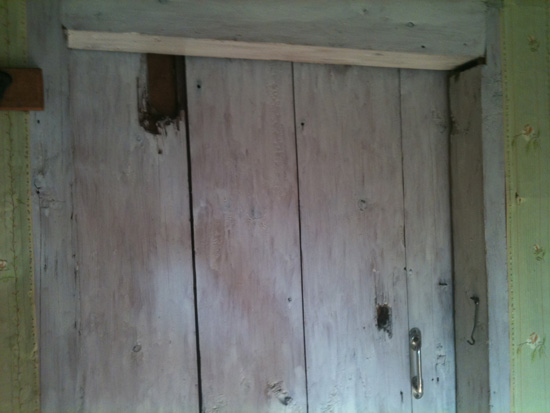
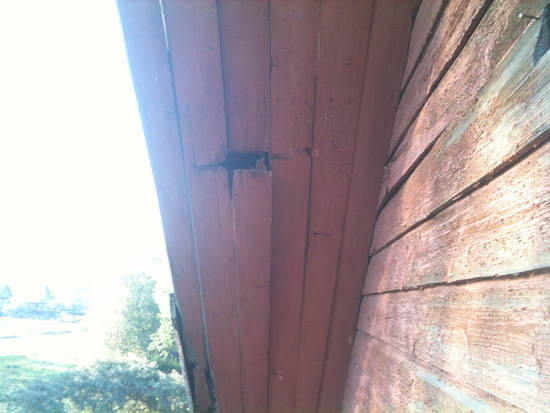
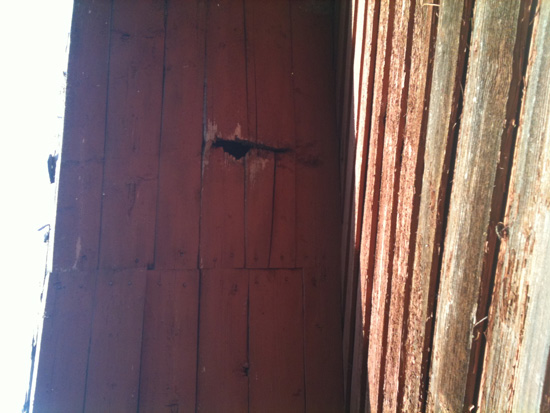
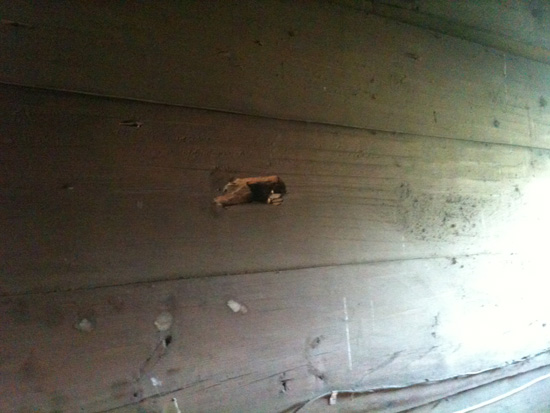
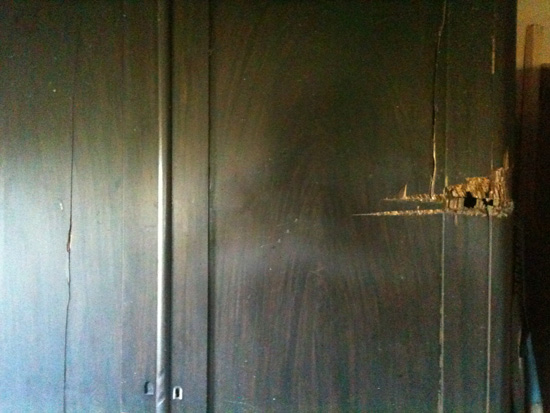
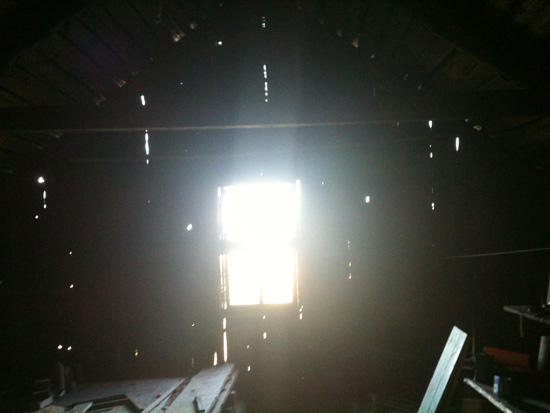
Hello, my great uncle died in this town and may have stayed in that. We have his death certificate which was sent to my great grandmother and dates Feb 3rd 1944 and states Dolgovka as his death location which brought me here. We never knew how he died, where his body was located, and what ultimately happened to him. He did not want to be there he was only 21 years old when he died. He told his friend before he left on the train to take him back from being on leave “I will not come back.”
LikeLike
Thank you for your note. It’s sad to think of your great-uncle dying in our village as the Germans were retreating. Our dacha still bears the wounds of those battles. The siege of Leningrad ended on January 27, 1944, so your great-uncle died just a few days later as the Soviet troops were driving the Germans out of Russia. The main road from St. Petersburg to Luga passes directly through Dolgovka; that was one line of the German retreat. There is an old cemetery in Dolgovka, but I don’t know if any troops were buried there. What was your great-uncle’s name? Perhaps we can look for such a grave when we’re there.
LikeLike